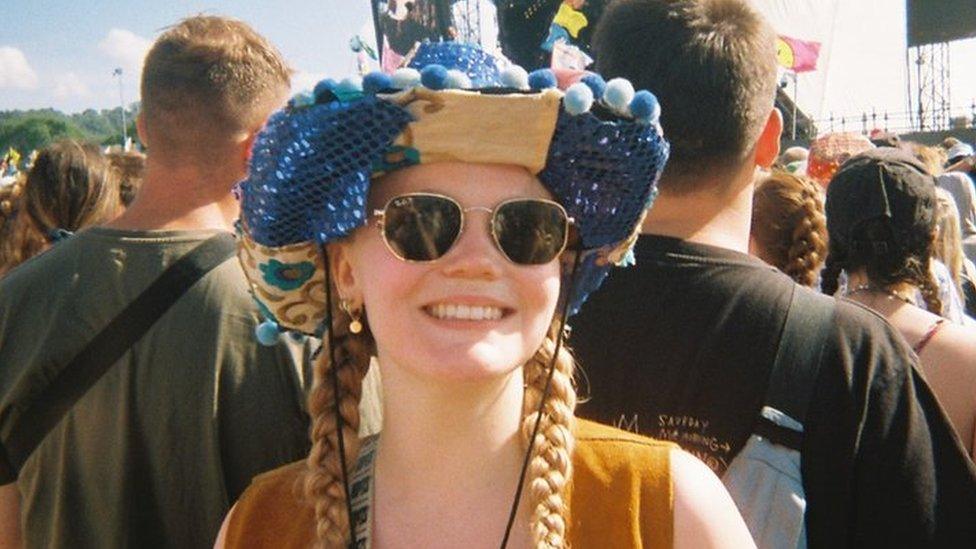Alcohol: Going sober in my 20s has dramatically changed my life
- Published
Emily Power decided she wanted to give up alcohol in 2021
Giving up alcohol has been a life changing decision for Emily Power.
The 28-year-old drama teacher, from Cardiff, admits that could sound a bit dramatic.
"But it's not at all," she said. "It really has changed my life in the best possible way."
She's one of 20% of people in Wales who choose not to drink alcohol, and a rising number of young people who are either sober or sober curious.
"Like a lot of teens in the UK, I started off drinking down the bus stop at 16 and then it just kind of spiralled from there," Emily said.
"By the time I was at university, I was drinking all the time and I realised something was going wrong."
Emily said her hangovers were "worse than ever", lasting "two or three days" and making her feel "anxious all the time".
She decided to go sober, and said the change has had a tremendous impact on her.
"I barely have anxiety anymore," she said.
"Now I wake up in the morning early, fresh, not feeling anxious or sick or anything. I get to go out and enjoy my day."
Emily said sobriety was the "best decision of my life", which had improved her mental health and her relationships.
She said questions about her decision tended to come from the "older generation".
"I think it's just that they may have grown up with drinking being the norm, and there's nothing wrong with that, but it is time for us to recognise that drinking can be really harmful," she said.
'A sober wave is coming'
Social media app TikTok has billions of videos under the hashtags #sober and #soberlife.
Emily said social media had played a big part in her journey.
She set up a community group called Sober Gals Wales, for women who are either sober or sober curious to connect, which has nearly 600 members.
"It's grown exponentially in the past year," said Emily.
"I think there's definitely a tide - a sober wave is coming."
The latest National Survey for Wales showed one in five people were sober, while two in three classed themselves as "moderate drinkers".
Emma McClarkin, chief executive of the British Beer and Pub Association, said alcohol-free beer was a huge area of growth in the UK, with sales of no and low-alcohol beers more than doubling since 2019.
"More pubs than ever before now offer at least one alcohol-free beer," she said.
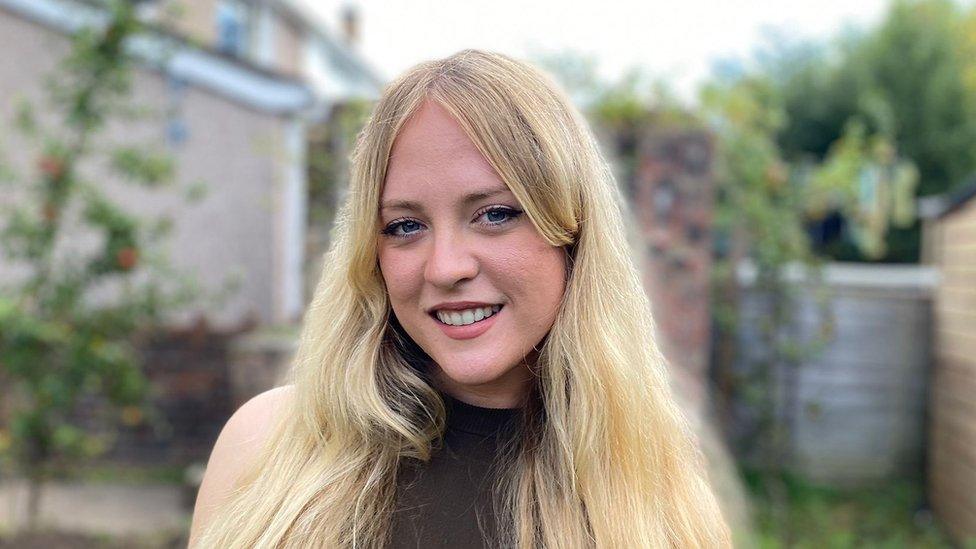
Emily Williams said alcohol-free drinks made her journey to sobriety easier
Alcohol-free drinks at pubs and clubs made Emily Williams' journey to sobriety more manageable.
The 26-year-old gave up two years ago, at the age of 24, and has not looked back.
"There are really good options, and it's so good to have that variety," said the healthcare assistant, from Cardiff.
Before going sober, Emily felt she was "always in the pub" and that her mental health was suffering.
But she said her journey to sobriety was not straightforward.
"Immerse yourself in the possibility that you might cut down and give that time and that'll take hold," Emily said.
She said giving up alcohol had made her feel "more confident, more energetic and sure minded", adding that she had since accomplished things like running a marathon.
The rise in the alcohol-free market has been huge for business owners Joelle and Sarah Drummond.
The couple founded 0.5% beer company Drop Bear Beer Co in 2019, and have just opened the UK's largest alcohol free brewery in Swansea.
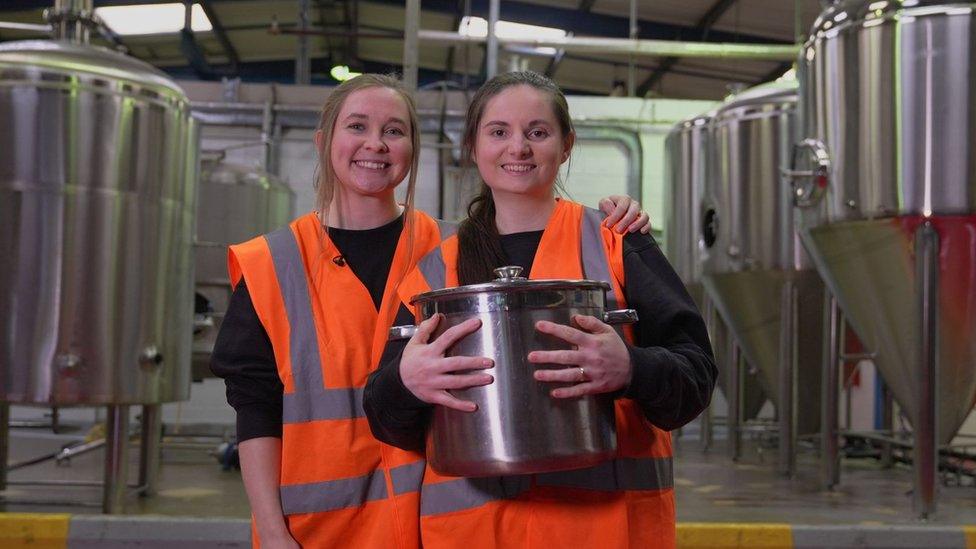
Joelle and Sarah Drummond holding the pan they brewed their first alcohol-free beer in
Their story began when they decided to "take a break from drinking", and found "all of sudden, we couldn't have craft beer".
They discovered the alcohol-free drinks industry was the "fastest growing drinks trend" and attempted to make their own beer in a saucepan in their one-bedroom apartment.
"And here we are today," said 29-year-old Joelle. "It's pretty surreal."
The couple said they had cut through a "male-dominated industry" and had seen a 2,000% growth from year one to year four.
"When we started attitudes were very different to alcohol-free and a lot of people didn't see the point. Whereas now people don't even ask what's the point. They just say what does it taste like," said Joelle.
Joelle and Sarah do drink alcohol and said they were "not at all about preaching" but "all about options".
Joelle said she believed the drive in growth in recent years had come from a change in attitude, with the pandemic acting as a "catalyst".
"We've all just started paying a little bit more attention to our health, our wellbeing… So many people want to look after themselves a little bit better," she said.

BLACK MUSIC WALES: The artists who pioneered black music in Wales
WALES' HOME OF THE YEAR: Which home will be crowned the winner?

- Published29 September 2018
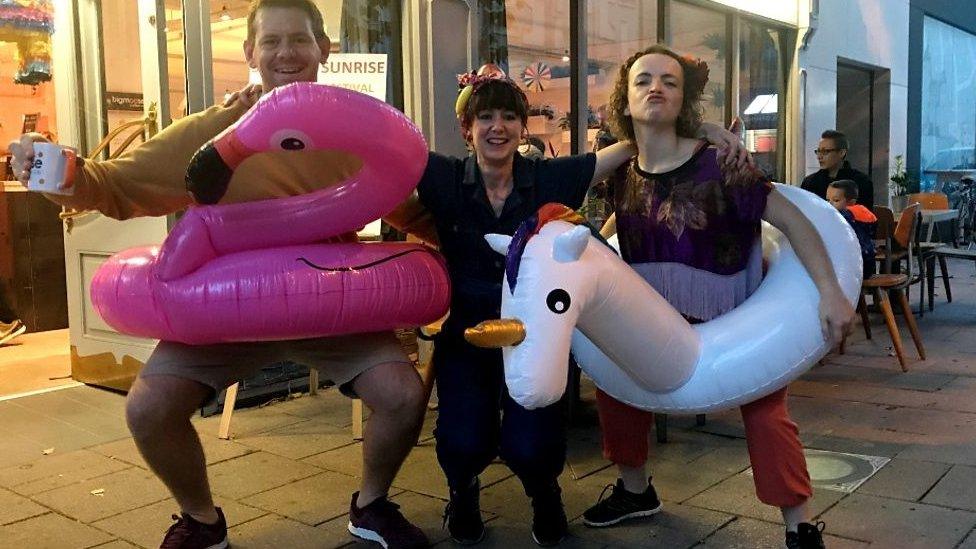
- Published19 November 2022
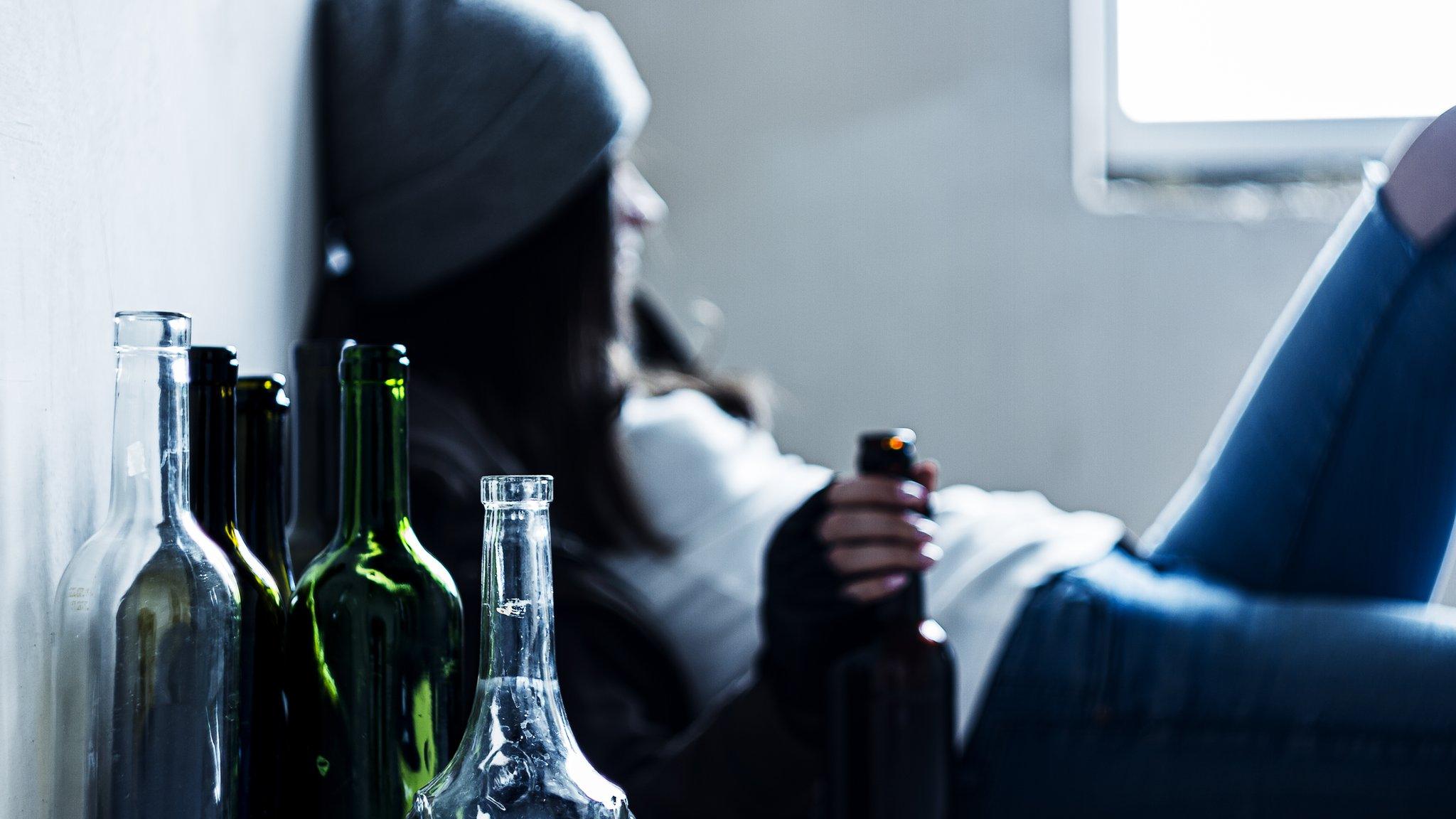
- Published19 October 2023

- Published16 January 2023
